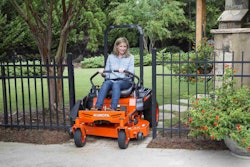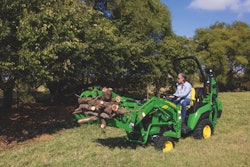 The Portland Memory Garden in Oregon’s largest city includes four seasons of plants and flowers in raised beds. The plants were chosen in part to stimulate the senses and spark memories.
The Portland Memory Garden in Oregon’s largest city includes four seasons of plants and flowers in raised beds. The plants were chosen in part to stimulate the senses and spark memories.Photo: www.portlandmemorygarden.org
The United Kingdom’s Grow Wild program, which encourages the planting of communal gardens using native plants, recently awarded £2,500, or approximately $3,900, for the creation of a sensory garden at an adult day-care center in Dundee, Scotland, that serves people living with dementia. Long known for their therapeutic benefits, sensory gardens are designed to stimulate the senses through the use of plants and other materials that engage an individual’s sight, smell, touch, taste and hearing.
According to a 2014 study published in the Journal of Post-Acute and Long-Term Care Medicine, patients with dementia are positively impacted through the sensory stimulation provided by these types of outdoor spaces. The gardens “not only present an opportunity to relax in a calming setting but also to remember skills and habits that have brought enjoyment in the past,” says Rebecca Whear, the study’s lead researcher.
It’s the scents present in a sensory garden that are often the most therapeutic for patients with dementia and the elderly. Naomi A. Sachs, founding director of the Therapeutic Landscapes Network, wrote in her blog, “…scents that elderly people remember fondly – ‘old-fashioned’ flowers like lilacs, honeysuckle, gardenia, mock orange, roses – can evoke positive feelings and often facilitate conversations, thus providing something important but often lacking in places like nursing homes: personal connection.”
Grow Wild is supported by the Big Lottery Fund and led by the Royal Botanic Gardens, Kew, and has given £41,500 (about $64,750) to support community projects in Scotland this year.
The head of the adult day-care center, Joyce McIntosh, says: “The funding means we have been able to create an access-friendly outdoor space that people of all capabilities can enjoy, including wheelchair users. Sensory activities in a bright outdoor space will help stimulate the minds of those who use the garden.
To learn more about how to create a sensory garden, visit the Sensory Trust.









